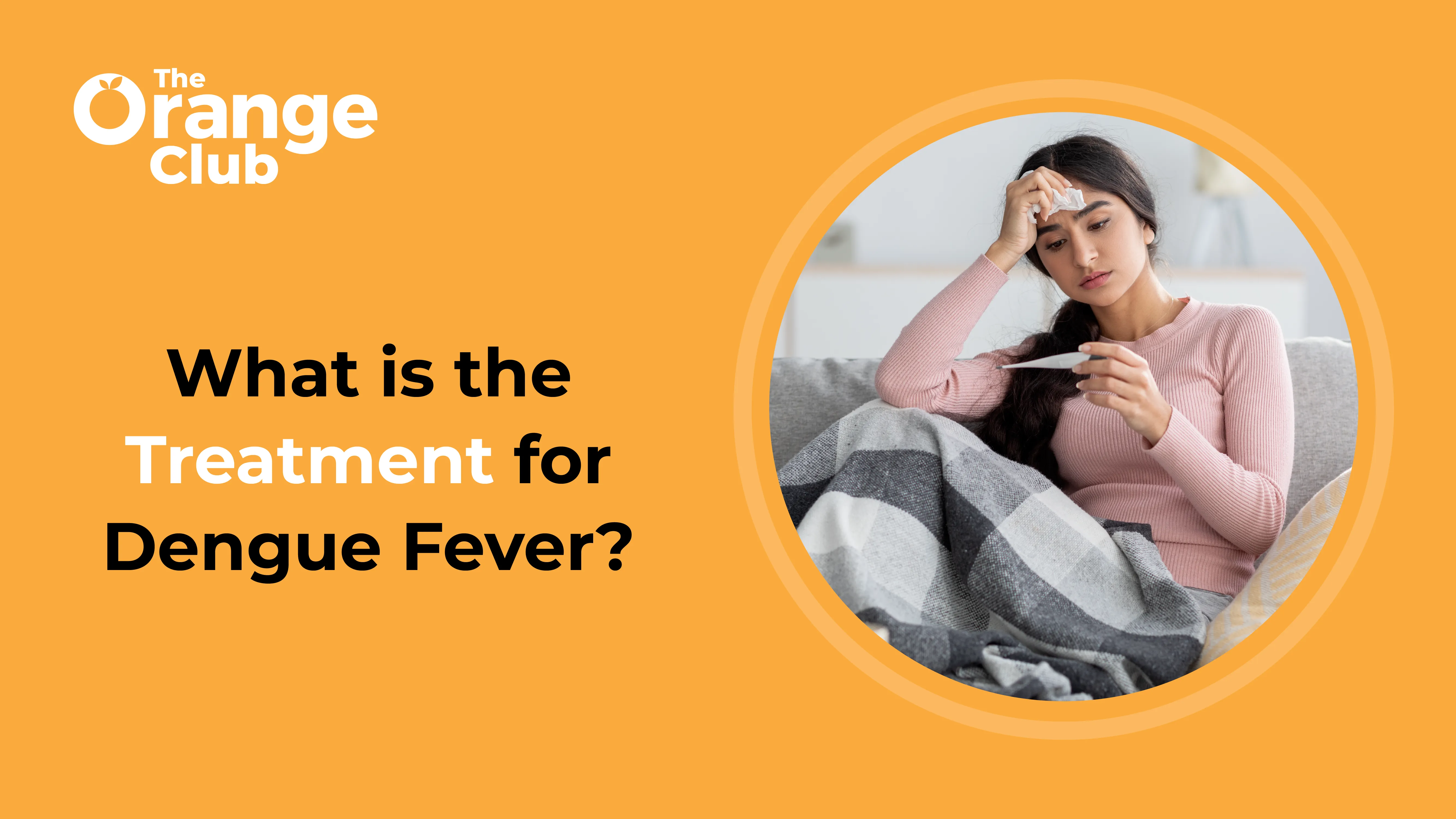Search for tests or checkups
SupportDengue Treatment: Symptoms, Care & Recovery Guidelines

What happens after a dengue diagnosis?
Many people worry about the next steps, but treatment for dengue is largely supportive and focuses on easing symptoms while helping the body recover. In our latest podcast, Dr. Roshni Jhan Ganguly spoke with Dhruv Gupta, Co-founder of Orange Health Labs, to explain the standard approach to dengue care.
Watch the video here
Supportive Treatment for Recovery
Since dengue is a viral infection, there is no specific antiviral medicine. Instead, treatment is aimed at managing symptoms. Paracetamol is commonly given to reduce fever, while other medicines may be prescribed depending on symptoms like nausea or abdominal pain.
Staying Hydrated and Balanced
A key part of treatment is maintaining the body’s fluid balance. Patients are encouraged to drink plenty of water and electrolyte-rich fluids to prevent dehydration. Careful monitoring of hydration levels helps the body cope with the infection and recover steadily.
Watching for Complications
While most cases improve with supportive care, some signs indicate the illness may be progressing. As Dr. Ganguly explains: “If the patient is having abdominal pain or nausea and vomiting, that means the liver may be involved, and dengue is getting complicated. This is when we need to watch very vigilantly.”
Takeaway
Dengue treatment focuses on comfort and careful monitoring. Fever management, hydration, and symptom relief form the core of recovery. However, being alert to warning signs, like abdominal pain, nausea, or persistent vomiting ensures that complications are caught early and treated appropriately.
We explore this further in Episode 10 of The Orange Club Podcast: The Truth About Monsoon Diseases: What Causes Malaria, Dengue & Chikungunya

Amazon Fuels Orange Health’s Growth with $12M Investment

How Does Stress Lead to More Allergies?
